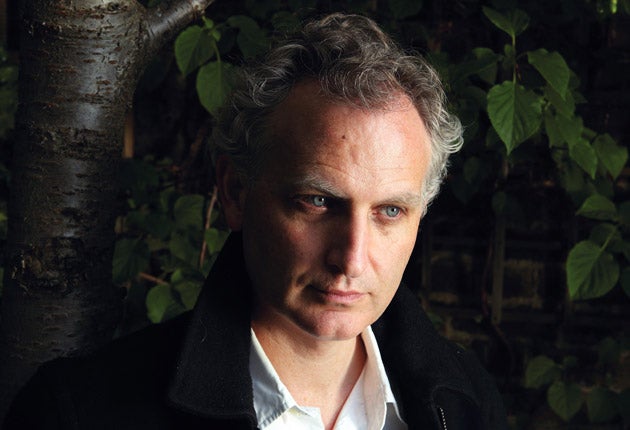I is an Other, By James Geary
We say one thing but mean another far more often than we realise, and, paradoxically, rely on this figure of speech to make ourselves clear

Being a pompous toad at the time, in my university days, I adorned the walls of my room with newspaper clippings.
Mostly these were cut-outs of recent obituaries, but in the centre was a column by Bernard Levin, reprinted in The Times the day after he died: "An antidote to the poison of euphemism".
Levin was irked by the fact that British Rail had renamed second-class travel as "standard" class. "The trains will still be dirty, uncomfortable and late, the food will still be disgusting and the fares will continue to go up," he wrote, and the attempt to disguise this fact with a semantic rebranding was deeply malicious. Saying that X is Y doesn't alter the properties of X. "All euphemisms are lies," Levin snarled. "They are lies told for a particular purpose, and that purpose is to change reality. But no man can change reality, particularly by doing no more than wave a word at it."
I felt so strongly about these words that they later formed the basis of my dissertation. But on reading James Geary's enchanting book I is an Other, which is subtitled "The secret life of metaphor and how it shapes the way we see the world", it is possible to be alert to a more nuanced understanding of them. Sure, euphemisms are lies: attempts to deceive, as in the case of British Rail. But sometimes, saying that X is Y is not an attempt to deceive. Sometimes it is the opposite: an attempt to reveal a deeper truth, not by denying any essential qualities in X, but on the contrary, by highlighting properties shared with Y. This is the realm of metaphor.
The etymology is instructive. "Meta" comes from the Greek for "over, across, or beyond"; "phor" comes from the verb "to carry". So metaphor means "to carry across". In the parlance, if a metaphor holds such that X is Y, X denotes the "target" and Y denotes the "source".
But what can the source reveal about the target? Take the most classic example: Shakespeare's "Juliet is the sun". Of course Juliet is not the sun. But "Juliet" and "sun" are composite ideas, packages of meanings, so that, as Geary puts it " .... she shines. Romeo is inexorably drawn by her gravitational pull. She is the centre of his universe. She radiates heat. And her brightness ... can burn".
It is this playful celebration of meanings that makes this book optimistic. And though the subtitle has a whiff of conspiracy about it, the sheer ubiquity of metaphor in everyday life makes the book feel urgent. Geary mobilises recent academic advances to suggest that people use a metaphor every 10 to 25 words, or six times a minute. Metaphors are not marginal interests, they are the mainstream. Mainstream is a metaphor in itself.
The most addictive section of Geary's book documents how specific species of metaphor contaminate different linguistic regions. Positive emotions rely on metaphorical height ("high spirits", "feeling up"); negative emotions on a lack of it ("I'm feeling low"). Strong economic performance is indicated through metaphorical agency: a stock market soars; shares rocket; the data climb, each of which invokes a conscious being with future-directed hopes. In contrast, weak economic performance is conveyed through object metaphors, which invoke a lack of consciousness. Shares plummet, tumble, slide, drop and fall.
Similarly, size metaphors are used to convey significance. Henrietta's anorexia is a "big deal" but Bertie's play is a "small matter". Relationships invoke health metaphors ("healthy marriage"). Debates invoke war metaphors ("fight his corner", "defend his ground"). Time invokes money metaphors ("saving time"). Money invokes liquid metaphors ("sponge off parents", "dip into reserves").
Why might this be? Habit, mostly. Geary writes with clarity and power on how such associations prove that metaphors are an aid to understanding. We comprehend the unknown by carrying across from the known. Sometimes we do this badly, or do it so much the original utility has been lost. Metaphors therefore come by degrees: they are active, dormant, and extinct. Cultivate the active, avoid the dormant, and kill the extinct.
This trinity is useful in conveying what metaphor is not. It is not euphemism (deceptive labelling); nor is it irony (double meaning). Extinct metaphors are also known as clichés, which betray intellectual docility.
A public benefit likely to accrue from the publication of this book is a retreat of stale images and a carrying across of more suggestive ones. We should favour the latter, knowing that they are an aid to the unknown. That is the paradox of metaphor: it tells us what an object or idea is by telling us what it is not. An erudite metaphor can therefore advance knowledge, and if you believe that the virility of a language is a measure of a civilisation's health, you will read Geary's book and join the fight against barbarism.
Incidentally, how many metaphors did the previous paragraph contain? I count seven.
To order any of these books at a reduced price, including free UK p&p, call Independent Books Direct on 08700 798 897 or visit independentbooksdirect.co.uk
Join our commenting forum
Join thought-provoking conversations, follow other Independent readers and see their replies
Comments
Bookmark popover
Removed from bookmarks